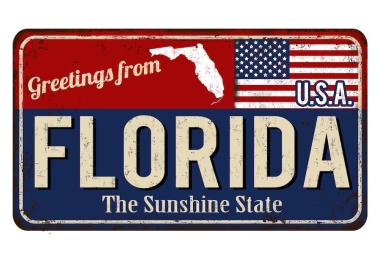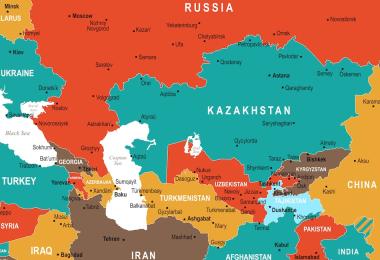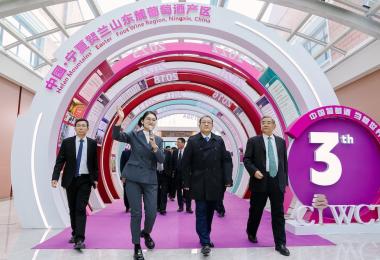Braxton Cooper, the Texas state sales manager for wholesaler Pioneer Wine Co, was not impressed the first time he looked at the portfolio of importer Winesellers Ltd.
“It just doesn’t stand out,” says Cooper, a long-time executive who has worked for several of the largest distributors in the United States. “There aren’t any big names on it, like you would see with someone like Kermit Lynch or Jorge Ordóñez. But once you taste the wine, and you look at what they do and how they do it, that’s when their portfolio stands out. The wines offer quality and value, and they taste like they should. How often can you say that these days?”
That has been Winesellers’ approach for more than four decades – supplying quality wine that offers value at a variety of prices, and if you don’t recognise the names of the producers, so be it. The company’s philosophy has remained the same since Yale Sager gave up his grocery store wine job in 1977 to start Winesellers: first, focus on smaller, less-known producers that are usually family owned, and use that as a point of difference to succeed in an environment that increasingly favours the biggest importers with the biggest names. Second, understand the intricacies of the US distribution system, and use that to get wine on store shelves without the need to bludgeon the retailer or restaurateur on price.
“It’s not like it hasn’t always been difficult to succeed in this business,” says Adam Sager, who runs the company’s day-to-day operation with brother Jordan, while father Yale oversees their efforts. “But the difference now is that you have to work even harder to stay relevant, especially if you’re a medium-sized company like we are. You have to jump in on a trend early in the cycle, and you have to be quicker to market. And you have to know exactly who you are, and you have to be consistent with that message.”
A family company
Yale Sager worked for Walgreens, the drug store chain, and then Jewel, one of the largest supermarket chains in the Chicago area, in the 1960s. He started Jewel’s wine operation in 1968 at a time when most US grocery stores sold cooking wine and sweet sherry, if that. He left Jewel for Shaw-Ross, the Miami importer, in 1973, where he was in charge of the Midwest.
That set the stage for the birth of Winesellers in 1977. One of the company’s first brands? Georges Duboeuf. The idea, then and now, was to combine the best qualities of big and small importers – to have size enough to serve all of the US, but be flexible enough to make quick decisions and to work with smaller distributors and smaller retailers and restaurants.
“The one thing we’ve always tried to do, since the beginning, is to be service oriented and market driven,” says Jordan Sager. “That means we need to have the most employees on the street at any one time, and to be able to push product through the supply chain quickly.”
This philosophy was on display on a snowy late fall day at Winesellers’ suburban Chicago headquarters, in a nondescript warehouse set among a couple of blocks of similarly anonymous buildings. There is no fancy front, no impressive lobby – just a receptionist, a couple of employees and the Sager brothers. Says Jordon Sager: “We don’t make any money having anyone in the office. That’s why they’re all out on the street.”
The conference room, replete with old magazines, boxes and bottles of wine scattered about, does not look nearly impressive enough for a company that imports product from 10 countries, handles four California labels, and has distribution in each US state – all to the tune of more than 800,000 cases a year.
“Finding wine is not the problem,” says Jerry Lasco, whose Houston-based Lasco Enterprises owns four restaurant and wine bar concepts, including Max’s Wine Dive in Texas and Colorado and The Tasting Room in Houston. “There are oceans of wine out there. The trick is to find the quality among the ocean, and then bring it to market on time and of the quality you promise. And that’s what the Sagers do.”
Lasco’s praise is not just marketing fluff; rather, in a business where it’s often easier to make someone angry than to send them an email, the Sager family has a long history of success. “They’re just really smart guys,” says Aaron Hans, who has owned a neighbourhood wine shop in Brooklyn, New York, called Big Nose Full Body, for 14 years, and who worked for noted importer Frederick Wildman & Sons before that. “They’re really adaptable, and it doesn’t matter if you are as small as I am.”
Always quality
First and foremost, Winesellers is about value and quality. This sets the company apart from many of its competitors, which have wholeheartedly embraced premiumisaton – that consumers want to buy more expensive wine. That Winesellers continues to include well-made and less expensive wines in its portfolio, and has not focused on wines cost $15 and more, is important, says Hans. “I agree that it’s not the sort of portfolio that really jumps out at you,” he says. “But once you look at it, really look at it, they are really solid brands and good values. They go out and find good suppliers, and they find really good wine for the prices.”
That’s because Winesellers has long cultivated a network of family-based producers – often small, but even when larger, still willing to work with the importer because they trust it to bring their wines to the US in a way that benefits everyone. Says Lasco: “They can form partnerships with growers and small producers that are a little more off the beaten path, so that the expenses are less and the costs are down, and that’s the kind of partnership that make them successful. I can’t say it enough. It’s all about their partnerships.”
This approach has allowed Winesellers to do more than just import wine. The company works with négociants and independent producers to create brands, something which started at the beginning of the decade. “That way, we would have complete control over the product,” says Adam Sager. “We could control the quality, we could control the price, we could control the brand equity. In the world today, that has become more important. That way, we can have a consistent message for the brand, and that doesn’t change no matter what state we’re in or who the distributor is.”
For example, Winesellers has worked with Mel Masters, an expatriate Briton, for decades. Masters is legendary for his contacts in France, which include the Le Charmel brand. But he also helped Winesellers find Lasco a rosé from southern France that is Provençal quality and style, but isn’t Provençal in price. Masters also does the same thing in California with Winesellers’ Tortoise Creek label. It is sourced from less expensive appellations but offers comparable quality to wines that cost one-third more. “I’m convinced that’s the key to their success,” says Cooper, “that they have found other family-owned producers to work with, and the other family-owned producers think the same way they do. They want a fair price, they want quality, they don’t want to manipulate the wines, and they want the wines to taste like they should. You taste the wines, and they should taste more expensive than they do.”
In this, Winesellers is able to work with retailers as small as Hans, whose store totals just 600 square feet (55m2), with single restaurants or regional chains like Lasco, and with some of the biggest operators in the US. The company has long handled natural food grocer Whole Foods’ Innovacion private label – a rosé, a white blend, a chardonnay, and two red blends from Argentina made by Santa Julia, another Winesellers client. The same holds true for its relationships with distributors, which range from small to mid-sized, like Pioneer in Texas, to the biggest in the world.
“They’re able to do this, to work with big and small, on and off premises, because they are as flexible as they say they are,” says Cooper. “They’re not competing against themselves, like so many other companies do. The find a region, they bring the wine, and they sell it.”
Over the years
Another sign of that flexibility – as well as the ability to create company-owned brands – came when cans hit the market a couple of years ago. In a season, Winesellers had on the market Tiamo, a canned rosé and canned white from Italy, while larger companies were still trying to decide if cans made sense. Then, when the company couldn’t get Grillo for the white for the next vintage, it was able to switch to Pinot Grigio and still increase production. And while other producers were trying to figure out how to sell cans to retailers, Winesellers found customers at golf courses and other outdoor venues.
“Our job is not done when we find a partner to work with,” says Adam Sager. “That’s just the beginning. We have to work the market, we have to build a relationship with the distributor, we have to show them we’re willing to work with the producer and the distributor to sell the wine.”
So, yes, they’re agile and smart, as those who have worked with the Sagers say. But, says Cooper, there’s one other thing that has made a big difference in the company’s 40-year history. “They’re really fun to work with,” he says. How often can you say that about a company in the wine business?








